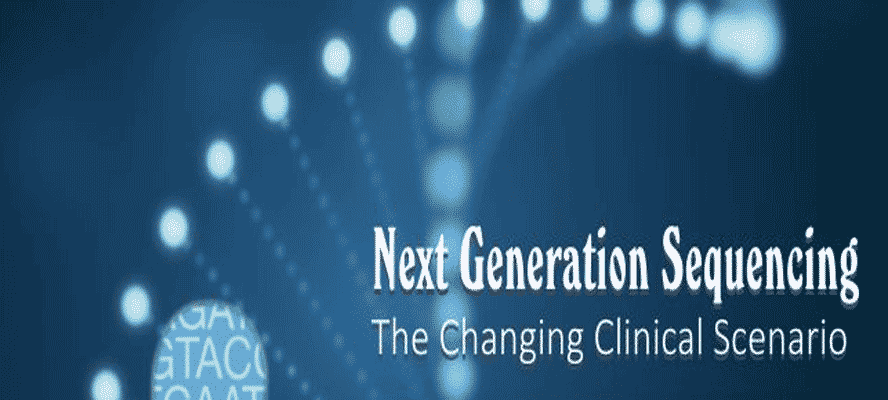cancer ceases to be a clinical condition that needs only an appropriate treatment strategy, but continues to be a malady that challenges almost all of the assumed physiological and medical concepts
It is important to understand in today’s era how the marriage of biological information technology with wet lab screening, diagnostic technologies and clinical outcome is moving towards bulldozing the stealth walls of protection that cancer builds around itself. Cancer treatment and management has become more of a science and art, wherein it has become imperative to tackle aggressiveness, relapse and resistance with minimal damage ti the quality of life of the affected . The conscious burden also lies on the need for counseling of the close family members of the affected to help them understand the risk for future generations it any a topic where Angelina jolie gets widely discussed
Product-of-Choice in Cancer Management
Precision medicine has become the product-of-choice cancer management with immunotherapy and targeted therapeutics adding great clinical benefit to many cancer types. The fundamental of precision medicine resides on the uniqueness of the genome of every cancer patient and the tumor microenvironment, which largely influences cancer aggressiveness. The study of human genome with increasing awareness of metabolites as well as technologies and software has taken precision medicine to a level, wherein today Tumor Mutation Burden (TMB) has also become a quantifiable possibility to assess prognosis and treatment outcome.
The great boom of artificial intelligence, big data analysis and feasibility to study the entire human genome would not have been possible if not for the catalyst technology of Next-Generation Sequencing (NGS). No genomics report or speculation becomes complete before being grateful for the technology where everything began Sanger’s and today, the NGS!
The success of the Human Genome project (HGP) albei time consuming and slow would not have been possible if not for the technology of sanger’s and today the basic science of sequecing has been explored under multiple explorative chemistries from semiconductor to amplification and hybridization based to ensurn massive parallel sequencing has became a reality giving birth to NGS. The technoligy of NGS emprowered genomics like none other, enabling the study of ensure the cost per megabase reduces to a great extent , making this a clinically favorable platform for use even with the $1000 genome
NGS to Diagnose
Diagnosis, staging and treatment of cancer have journeyed through different milestones and today all three have found big data analysis and artificial intelligence to circumvent their individual roadblocks. NGS as a technology has ensured a wealth of data is made available for oncologists on every molecular aspect of a cancer patient, right from low frequency allelic variations, to structural variations including expression levels. This abundance of data when coupled with an appropriate bioinformatics analysis ensures the factors around occurrence, progression, relapse, treatment efficacy and outcome becomes prophesied. Next-Generation Sequencing as a platform is versatile, as the massive parallel sequencing ability can be tailared for information on hot spots or broad gene panels depending on the clinical requirement which varies for each patient.
The assay to be used in NGS also depends on the stage at which an oncogenomic test is recommended for the patient. The reason for NGS-based oncology test will be different for a repeated treatment failure patient vs. patient newly diagnosed and looking for a best fit course from the beginning. Every Next-Generation Sequencing data can be used to derive a disease-oriented highlight depending on the assay; a popular example to cite here for better understanding would be individuals looking for a hereditary cancer test to assess risk and another individual affected by a hereditary cancer syndrome.
NGS as a platform in the clinical space is widely put to use for prenatal screening as well as to detect inheritance of single gene disorders, its utilization in cancer treatment and management has grown in scope wherein molecular classification of tumor based on genomic, epigenetic, transcriptomics and proteomic signatures is being done beyond the conventional histopathological classification for treatment.
Biomarker discovery by NGS has rapidly changed the face of histological classification of cancer; an example being brain cancer. Traditionally brain cancer classification rested on determining its cell of origin, either astrocytomas or oligodendrogliomas. However, the 2016 revised guidelines by WHO on brain tumor strongly recommends integrating molecular characteristics to diagnose. Clinical biomarkers bear diagnostic (presence or absence of cancer), prognostic (determine nature of cancer – aggressive or otherwise), predictive (determine patient’s response to therapy) as well as pharmacodynamic potential.
The power of Next-Generation Sequencing in oncology can also be attested from the fact that genetic material from both tissue and blood can be assayed and this improved the utilization of the concept of liquid biopsy to a great extent. Liquid-biopsy based cancer diagnosis works on the principle of studying tumor cell derived DNA; termed cDNA (circulatingtumor DNA) Which are present in extremely low concentrations and NGS has ensured these nanogram quantities of tumor genomic material become accessible for analysis. Apart from DNA analysis for studying known and unknown genes, NGS also facilitates study of exosomes which facilitate intercellular communication and hence, implicates in cancer metastasis, angiogenesis, as well as immune invasion. Studying the profile of RNA molecules within exosomes provides a snap shot of the liver tumor cell population.
NGS in Precision Medicine
Precision medicine or personalized medicine focuses on the fundamentals involved in increasing treatment precision by rigorous patient classification made possible by NGS and artificial intelligence. Personalized medicine relies on the fact that each individual is unique and hence, information from a patient’s genes, proteins and tumor microenvironment should be considered before treatment for better precision.
Targeted therapeutics and immunotherapy has today emerged to be the treatment of choice and both require a broad range of molecular information to base outcome. To help this therapeutic domain grow, Next-Generation Sequencing has played a key role in determining two crucial tumor-related factors; TMB and Microsatellite Instability (MSI). TMB as a tissue-agnostic marker indicates response towards anti PD-L1 or a combination of anti-PD-L1/CTLA4 therapy among patients with high TMB.
Conclusion
With precision medicine projected to benefit millions of people in the next 5 years, it is estimated that around 5.1 million precision cancer diagnostic tests would be performed between 2022-2028 accumulating a market value of nearly $40 million by 2028.
NGS thus, not only identifies potential actionable mutation signatures but also influences treatment decisions and clinical care. To cite one study wherein 42.6% of the patients received treatment based on NGS outcome, 64.7% expressed overall response rate with the matched targeted therapeutics. While opinion to have NGS-based testing for all metastatic tumors as a need is popular, the concern continues to revolve around cost, counseling and coverage.
Whatever may be the debate and contraindications for use of NGS in clinical oncology space, it continues to grow and remain in the scope of interest for researchers as well as molecular oncologists who can relate with the indispensable contribution made by Next-Generation Sequencing in improving cancer treatment and management manifold.








